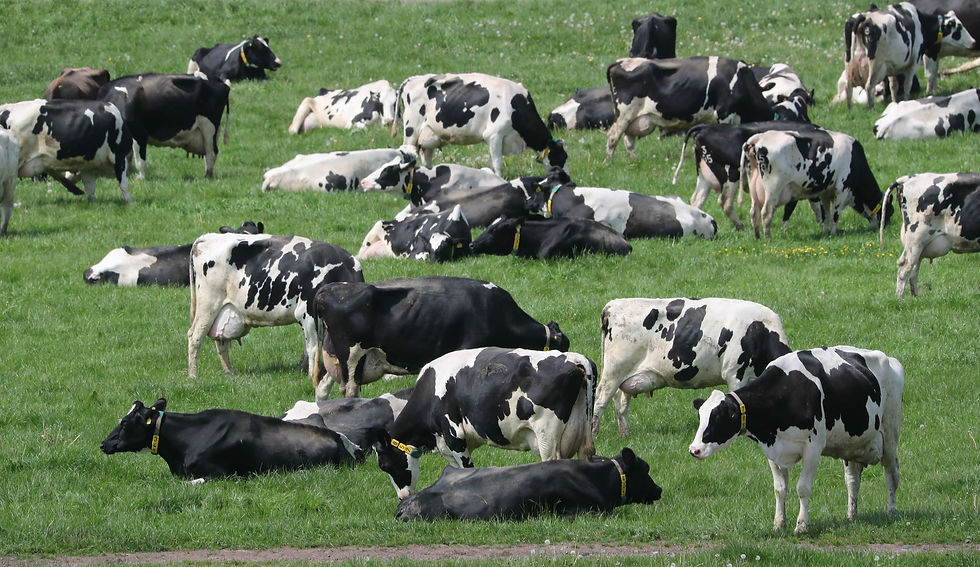

Spirulina Smoked Salmon Goes Commercial After EU Nod and $4M Boost
A new wave of seafood is hitting the shores and this one never swam a day in its life. Israeli FoodTech firm SimpliiGood by AlgaeCore Technologies is officially scaling commercial production of its plant-based spirulina smoked salmon made entirely from spirulina, the vibrant green microalgae best known for smoothies, supplements, and now, apparently, seafood.
4 hours ago2 min read


EARTH Is an Anagram of HEART, So Cook a Meal That Doesn’t Require an Alibi
And here’s a wild thought - EARTH is an anagram of HEART. Coincidence? Maybe. But let’s run with it. Because something is changing, not fast enough for the forests or the fish, but enough to whisper perhaps, just perhaps, we’re learning to eat with our hearts again. This isn’t just wordplay — it's a shift in planetary intimacy.
12 hours ago3 min read


India’s Fresh Food Frenzy and How 10-Minute Deliveries Are Rewiring the Indian Diet
Leading the pack is Kisan Konnect, a farm-to-fridge juggernaut that’s tapped into India’s new obsession is right in the middle of India's fresh food frenzy delivering fast, fresh, and traceable food. Think e-commerce, but with tomatoes. Q-commerce is already redefining shopping in India (10-minute deliveries, no joke), but this is QF-commerce - Quick. Fresh. Local. It’s a dietary shift disguised as a delivery service.
2 days ago2 min read


Would You Eat a Chicken Nugget with Veins? Japan’s Lab-Grown Mega-Nugget Sparks a New Food Debate
In a development, part science fiction, part Sunday dinner, Japanese scientists have just unveiled the world’s largest lab-grown chicken nugget with veins. Yes, you read that right. The nugget, grown in a lab using a simulated circulatory system of hollow fibres, marks a huge leap forward in the cultivated meat race. But before you fire up the air fryer, no it’s not edible yet.
3 days ago2 min read


Now Dubai Chocolate Goes Vegan & Ombar’s Pistachio Cream Bar Is the Real Indulgence
Now Dubai chocolate is vegan. And honestly? It’s about time. The original pistachio-stuffed ‘Dubai chocolate’ may be blowing up online, but if you’re plant-based or just ingredient-conscious, your options until now have been slim to none. But here comes Ombar Chocolate -clean, green, and stuffed with a nutty centre so good it might make you forget what dairy ever tasted like.
3 days ago2 min read


Is This the End of Meat Imitation? Revo Foods Bets Big on Function, Not Familiarity
In a quiet but seismic shift, Austrian food-tech startup Revo Foods has just released “The Prime Cut” - a 3D-printed mycoprotein product finally answering a question industry insiders are beginning to ask out loud. What if the future of alternative protein isn’t meat-like at all?
4 days ago2 min read


No Gums. No Stabilisers. Just Next-Gen Protein Built for Earth, Ready for Mars
What if your protein was clean enough for your body and smart enough for space?
That’s the proposition behind Pureture, the next-gen protein biotech outfit quietly scaling a next-gen yeast-based casein with no gums, no stabilisers, no emulsifiers, just functionality, purity, and real-world performance.
4 days ago2 min read


Was Pizza Hut’s Plant-Based Caviar A Pop or a Flop?
So, Pizza Hut in the US has thrown a curve-ball from the left field and it wasn’t crust-shaped. In a move leaving plant-based foodies and food snobs equally stunned - the chain dropped a plant-based pepperoni “caviar” made from seaweed. Yes, seaweed. Smoky little plant-based caviar pearls looking like they belonged at a yacht party and not dumped on a Personal Pan.
5 days ago2 min read
_edited.png)






Comments